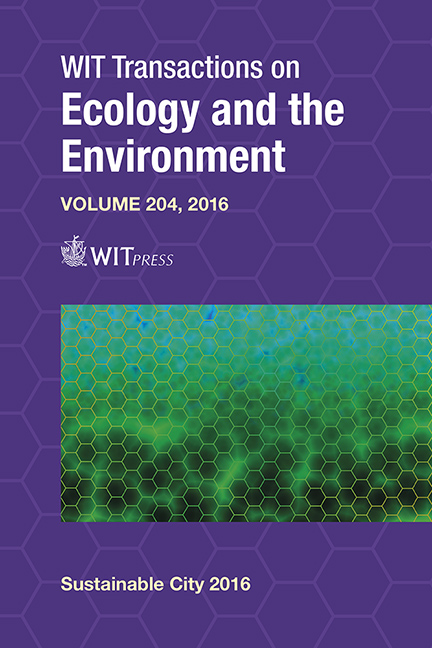Relative Vulnerabilities Of Urban Residential Development To Oil Depletion: Pilot Case Studies Of A Representative Building Typology In The Australian Context
Price
Free (open access)
Transaction
Volume
204
Pages
13
Page Range
509 - 521
Published
2016
Size
2,299 kb
Paper DOI
10.2495/SC160431
Copyright
WIT Press
Author(s)
R. J. Brewster
Abstract
The global production of conventional oil is predicted to have peaked in the first decade of this century and then gradually declined, leading to eventual adverse consequences for direct and indirect oil related inputs to urban land development and residential construction. This paper reports the PhD case study investigation into adapting urban residential development to an oil-constrained future in the Australian and wider context. The research is grounded in a general theoretical framework of sustainable development theory, encompassing urban metabolism and partial life cycle analysis. The oil dependency relationship is demonstrated by material flow analysis of petroleum (oil and gas) related inputs into residential development. The relative oil depletion vulnerabilities are quantified by a pilot case study of four building types, representative of the residential typology in the reference City of Gold Coast. The cross-case comparison finds that oil-related inputs affect all building types. Embodied energy is least for a detached house, increasing for the three, six and thirty storey apartment buildings. Empirically, the medium rise six storey case is the most energy efficient higher density form and offers other advantages to reduce urban sprawl and improve urban design outcomes. The research points to a proposition that all forms of urban residential development will be affected by oil constraints.
Keywords
oil depletion, sustainable construction, embodied energy, life cycle assessment, six-storeys





